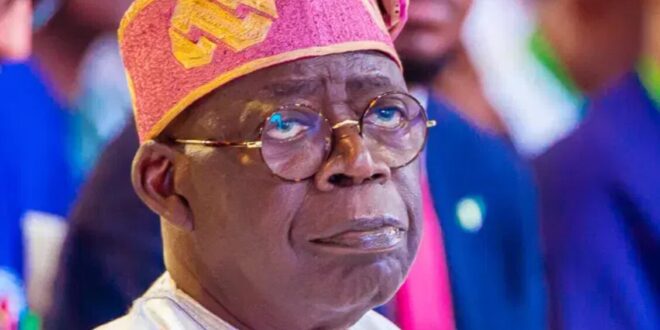Following a recent U.S. court order, the Federal Bureau of Investigation (FBI), Drug Enforcement Administration (DEA), and other American agencies are set to release long-awaited investigation reports relating to an alleged drug case involving President Bola Ahmed Tinubu.
In April, Judge Beryl Howell of the U.S. District Court for the District of Columbia ordered the FBI and DEA to release the documents by May 2, 2025. The two agencies had earlier issued what is known as a “Glomar response” — declining to confirm or deny the existence of such records. However, the judge ruled that continued secrecy was “neither logical nor plausible.”
The pending release follows a Freedom of Information Act (FOIA) lawsuit filed in June 2023 by U.S. transparency activist Aaron Greenspan. The lawsuit sought access to investigative records from several U.S. federal agencies regarding a 1990s drug trafficking and money laundering case in Chicago allegedly linked to Tinubu and others.
According to court documents, Greenspan filed 12 separate FOIA requests between 2022 and 2023 directed at the FBI, DEA, Internal Revenue Service (IRS), U.S. Department of State, U.S. Attorneys’ Offices in Indiana and Illinois, and the CIA. The requests focused on obtaining documents about four individuals: Bola Tinubu, Mueez Akande, Lee Andrew Edwards, and Abiodun Agbele, all allegedly associated with the drug ring.
While some records — including asset forfeiture documents — have been publicly cited since the late 1990s, the U.S. agencies resisted releasing further files. Judge Howell, however, ruled in favour of disclosure, asserting that the agencies’ justifications for secrecy no longer held water, especially since parts of the case had already been public for decades.
Opposition Reacts: ‘Nigerians have waited since 1999’
Former Vice President and 2023 PDP presidential flagbearer Atiku Abubakar has welcomed the court-ordered release. Speaking through his media aide Paul Ibe, Atiku said Nigerians are eager for closure on a matter that has lingered for over two decades.
“We will wait and see. Nigerians have been anxious ever since the issue was first raised in 1999 by the late Chief Gani Fawehinmi. Now they want to see the full report. It’s understandable,” Ibe said.
Similarly, Ladipo Johnson, the National Publicity Secretary of the New Nigeria People’s Party (NNPP), urged restraint, warning that public expectations might not match the content of the files.
“There’s a Yoruba proverb that says a groom expecting his bride doesn’t need to stretch his neck. We should read the report before judging its impact. I think many people may end up disappointed — it may not contain anything spectacular,” he said.
Presidency and APC dismiss concerns: ‘No Surprise, No Indictment’
Reacting to the development, the Presidency has maintained that the documents will not contain new revelations or threats to President Tinubu’s legitimacy.
Bayo Onanuga, Special Adviser to the President on Information and Strategy, noted that the core documents in question — including an FBI report by Agent Kevin Moss — have been in the public domain since the 1990s and do not indict the President.
“There is nothing new to be revealed. The reports by Agent Moss of the FBI and the DEA have been in the public space for more than 30 years. The reports did not indict the Nigerian leader,” Onanuga stated.
Backing this stance, President Tinubu’s U.S.-based legal team, including Babatunde Ogala, SAN, and Attorney Afolabi, pointed out that Tinubu has travelled in and out of the U.S. freely since 1994 — a signal, they say, that he is not under any legal cloud.
The All Progressives Congress (APC) also weighed in. Senator Ajibola Basiru, National Secretary of the ruling party, stressed that the release of such documents, regardless of content, does not have constitutional consequences for Tinubu’s presidency.
“No one can be removed from office unless it’s in accordance with the Nigerian Constitution,” he said, describing the opposition’s reaction as “melodrama.”
What to expect today
Legal observers say the release may include previously unseen internal memos or redacted details, but the substance is unlikely to dramatically shift the political landscape. However, transparency advocates view it as a win for public accountability.
As the world watches the release unfold today, the document dump — mandated by a U.S. court — marks another moment in the enduring debate over Nigeria’s leadership history, democratic accountability, and the power of public records.
 Gistfox Your News Window To The World
Gistfox Your News Window To The World 




